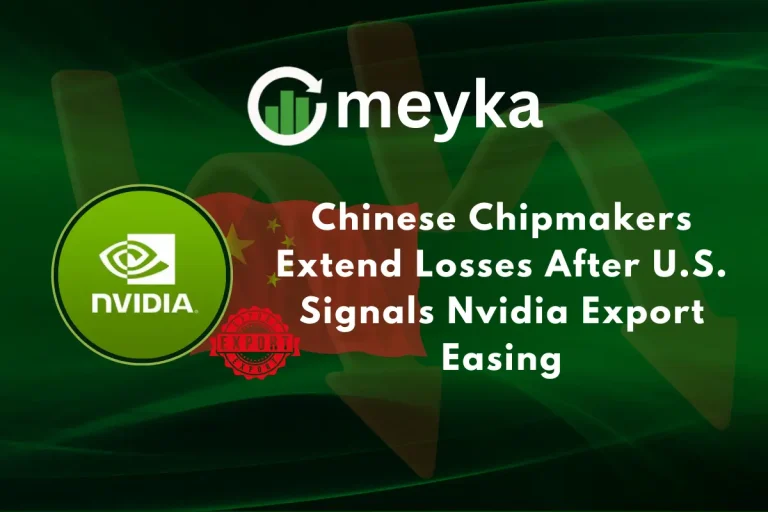Micron Server Chips Halted in China Following New Supply Ban
Micron Technology, a leading U.S. memory chip maker, is pulling back from a key market. China recently banned Micron server chips from being used in critical infrastructure. As a result, Micron plans to cease supplying server chips to Chinese data centers. This ban is more than a business setback; it highlights intensifying tensions in global tech trade. In this piece, we examine what’s at stake, who is impacted, and how the semiconductor world may change.
Overview of the Supply Ban
China’s ban traces to a 2023 decision by its Cyberspace Administration. The ban barred large Chinese information infrastructure firms from buying Micron products, citing national security risks. Micron tried to adapt, but it has reportedly failed to recover full access to China’s data center market. As of October 2025, sources say Micron will exit server chip sales for data centers in China, though it will still supply other sectors.
The ban targets “critical infrastructure,” which covers services like telecommunications, cloud platforms, and national data systems.
Micron Server Chips: What’s Affected?
By “Micron server chips,” we refer largely to DRAM, high-performance memory modules, and memory products used in data centers and AI servers. These chips help servers handle workloads, store data temporarily, and keep operations fast and stable.
In China, key users include cloud providers, telecom operators, and enterprises building AI, big data, or web services. With Micron’s exit, these users must find alternatives fast. Some Chinese customers that operate data centers outside mainland China, such as Lenovo, may still receive Micron supplies.
Micron will also continue supplying to the automobile and mobile phone sectors in China, since those parts are not covered by the ban.
Reason Behind the Ban
Political & Security Motives
China cites national security risks as justification. It argues foreign chips might have hidden backdoors or vulnerabilities. But many analysts see this as a retaliatory move in the ongoing tech rivalry between the U.S. and China. U.S. export restrictions on advanced chips have targeted Chinese firms. The ban on Micron may be Beijing’s countermeasure.
Historical Tensions
This is not the first time Micron has faced Chinese regulatory pressure. In 2023, China first banned Micron chip purchases for infrastructure. Also, Chinese firms like YMTC (Yangtze Memory Technologies) and CXMT have grown with government support; the ban accelerates their role.
Market and Economic Impact
On Micron
China once accounted for about 12% of Micron’s revenue, around $3.4 billion in a recent fiscal year. After the ban, Micron’s stock price dropped (e.g., ~3.5% in pre-market trading) as investors processed the news.
Micron is now reshaping its business: pulling away from China’s data center segment, but still serving other tech sectors and maintaining some presence.
On Chinese Companies
Enterprises that relied on Micron chips now must seek new sources. That means delays, cost hikes, compatibility challenges, and risk to ongoing projects. China may accelerate the adoption of domestic chipmakers. Firms already in place, like YMTC and CXMT, stand to gain.
But Chinese chips often lag in performance or scale compared to top foreign suppliers, so full replacement is tough in the short term.
On Global Semiconductor Supply Chain
A void in Chinese demand for Micron server chips changes supply dynamics. Rivals like Samsung, SK Hynix, and local firms may pick up share. Prices of memory components could move upward in some segments if supply tightens. Countries that depend on Chinese tech may feel ripple effects.
Also, realignment of alliances is likely: companies may seek more regionalization, reduce dependency on a single source.
China’s Alternatives and Local Response
China has already boosted support for domestic memory producers:
- YMTC (Yangtze Memory Technologies) specializes in flash memory and is state-backed.
- CXMT (ChangXin Memory Technologies) produces DRAM locally.
These firms are improving, but they still struggle to match high-end server chip performance. Yield rates, process nodes, and reliability remain challenges.
The Chinese government is pouring funding, incentives, and protective policies into its semiconductor industry, aiming for self-reliance.
In the near term, many Chinese users will choose foreign alternatives (Samsung, SK Hynix) or hybrid strategies, while gradually increasing local adoption.
US Reaction and Geopolitical Angle
From the U.S. side, officials may view China’s actions as unfair trade practices or even economic coercion. Washington could respond with more export controls, sanctions, or diplomatic pressure. The broader U.S.–China tech war is intensifying: restrictions on AI chips, semiconductors, and advanced manufacturing are becoming tools of strategy.
This case also sends a message to other global chipmakers: dependency on any one country can be risky.
Future Outlook
We may see several key trends emerge:
- Micron will refocus its efforts on markets outside China and lean on demand from AI, data centers, and cloud infrastructure globally.
- China will push harder to improve domestic chip quality. Over time, it may reduce the performance gap.
- Global supply chains will fragment, and firms will diversify suppliers to avoid sudden bans or political risks.
- Tech alliances may shift: countries will collaborate regionally, control sensitive flows, and re-evaluate dependencies.
Within 5–10 years, the memory market structure may look very different, less dominated by U.S./Korea, more fragmented with strong local players.
Conclusion
The halt of Micron server chips in China is a turning point in semiconductor geopolitics. What seems like a business ban is a bold move amid trade rivalry, national security concerns, and ambitions of tech self-reliance. We see how this affects Micron’s revenue, China’s firms, and the global supply chain. The move accelerates China’s push for domestic chips, forces companies to rethink risks, and underscores that in tech diplomacy, chips are power.
As readers, we should watch how alliances, policies, and markets evolve. The next big memory innovation might come not only from established giants but from those rising under new pressure.
FAQS:
China says Micron’s server chips could be a security risk. The government does not want foreign parts in critical systems. So they stopped certain Micron products from being used.
The United States is limiting chip sales to China to protect its technology. Officials worry advanced chips could help China’s military and give it more control in global tech.
The “scandal” refers to China accusing Micron of security risks and blocking its chips. Some experts believe it was also a response to U.S. chip limits on Chinese companies.
Disclaimer:
This content is for informational purposes only and is not financial advice. Always conduct your research.






